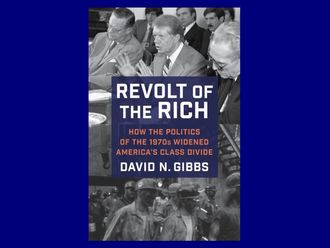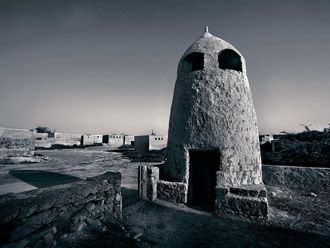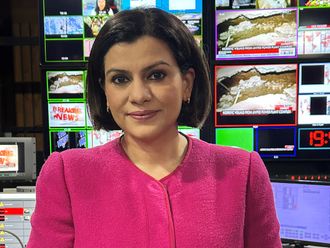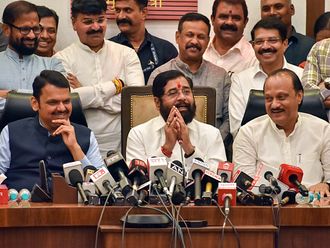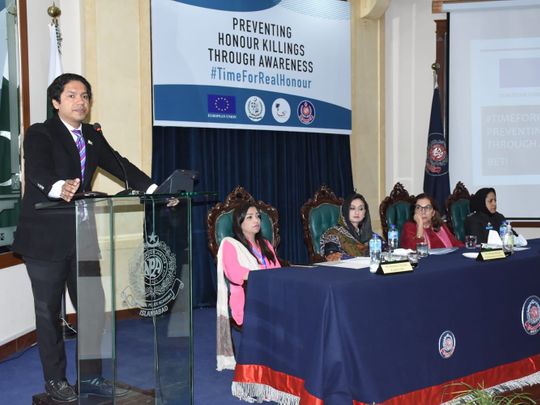
I noticed three things whenever I heard Barrister Ahmad Pansota speak, in various talk shows, on the constitutional crisis Pakistan faced before, during and after the controversial vote of no-confidence against the then-prime minister Imran Khan: Pansota’s in-depth, expansive knowledge of the Constitution of Pakistan and Pakistan’s Penal Code, his eloquence, and his impeccable manners. In a world where ignorance is cloaked in heavy words, shrill loudness is applauded, and aggressiveness is taken as a sign of intelligence, Pansota’s old school values, personally and professionally, are a rarity. And utterly remarkable.
An alumnus of Lahore’s Aitchison College and University College (external programme), Pansota did his Bar-at-Law from Inns of Court School Law, London, and was called to the bar at Lincoln’s Inn London in 2005. Having started his career with Lahore’s Cornelius, Lane & Mufti, in 2007, Pansota became the founding partner of Ahmed & Pansota, a legal firm based in Lahore.
A columnist on legal issues and a legal expert appearing regularly on national TV channels, Pansota also hosts a thrice-a-week talk show “Capital View” on PTV. He also hosts a web talk show “Legally Speaking” on “VakeelOnline”.
Barrister Pansota’s resume is extensive, an un-trumpeted but illustrious journey of decades of hard work, sincerity, and commitment to his profession and deep empathy for those who seek justice. Currently, Pansota is an elected member of the Bar Representation Committee of the Honourable Society of Lincoln’s Inn; Member Board of Directors of the Punjab Education Foundation; member Dar-ul-Amaan Advisory Committee, Lahore; and a lecturer at Lahore’s Kinnaird College University, and University of Management and Technology.
For Gulf News, I asked Barrister Ahmad Pansota a few questions:
Mehr Tarar: In 2019, you filed a petition titled “Right to Food”. What motivated you to highlight an issue that despite being a basic human need is ignored—individually, collectively, institutionally: availability of food for every human being?
Barrister Ahmad Pansota: As far as my petition Right to Food is concerned, my main motivation was an article published in Dawn, written by a young lawyer, Iman Bandial. But even before that, I always wanted to address the very important issue of food wastage and conservation in Pakistan. Whenever I attended a wedding, or went to a restaurant, I would always see a lot of food being wasted, food that ended up in dumpsters. I was constantly concerned about that wastage. I didn’t know how to address this issue, and I even tried through government.
In my Public Interest Litigation (PIL), I challenged that the federal and provincial [Punjab] governments should be directed to come up with a law or a policy about conservation, preservation, and food security. In the judgement given in December 2019, for the first time in Pakistan, a concept of food security was given. Honourable Justice Jawad Hassan of the Lahore High Court directed the Punjab Food Authority to make regulations. In those regulations, drafted with respect to food, penalties, such as fines, confiscation, and surrendering of licences, were also included.
The judgment was published on the website of the Harvard Law School Center for Health Law and Policy Innovation. It was also published in the Pakistan Law Digest, the most prestigious legal publication in Pakistan.
The “Rights of Transgender” community, another PIL that you filed in the Lahore High Court in April 2022, is of great importance for Pakistan in its journey to become a country for all. What are the salient points of this petition?
Rights of the transgender community are very close to my heart, and my respect and love for the transgender people is immense. The PIL that I had recently filed was triggered by the usage of the word “khusra” in a dialogue in an upcoming movie. The acceptable word is “khwaja sira”; a judgment of the Supreme Court of Pakistan [The Transgender Persons (Protection of Rights) Act, 2018] rendered the use of the word khusra illegal, and an offence.
In Pakistan, the transgender community, mostly downtrodden, is always subjected to a great deal of hatred and derogatory terms, a very unfortunate reality. Using international conventions, laws and the Constitution of Pakistan, and the judgements passed by the Supreme Court of Pakistan, I filed the PIL in which I challenged a word in a scene of a movie. I have been told that the offensive word has been removed, but the petition is still pending. I am hoping for a positive outcome.
As the chairperson of the Council of Complaints (CoC), Pakistan Electronic Media Regulation Authority (PEMRA), an honorary position I held from March 2020 to March 2022, I also passed a judgment in favour of the transgender community. It was based on a comment made by one of Pakistan’s leading actresses who said on air that she looks like a khusra, referring to the transgender people in a condescending way. I issued the penalty of a substantial fine on the channel for allowing to go on air a word that is a violation of the PEMRA code of conduct.
Recently, you helped a female complainant in a high-profile sexual harassment case. What are the major impediments in ensuring justice for women who approach a court of law in cases of sexual harassment, abuse, and rape?
This sexual harassment case is one of the most important cases I have done so far. The hearing was at the Office of Federal Ombudsman Secretariat for Protection Against Harassment at Workplace, Islamabad. A very dear friend asked me to take the case pro bono, and I took it up while the hearing was already halfway through. A grade 21female bureaucrat had filed a case of sexual harassment against a former ambassador. Madam Kashmala Tariq Khan, the Ombudsman person, heard the matter at great length and recorded the evidence.
My client had to sit through some extremely uncomfortable evidence, but we won the case. The accused was fined with five million rupees and dismissed from service, which would have been applicable had he not already retired from service.
I believe this verdict, looking at its substance and depth, to be one of the Ombudsman person’s most important judgments on the issue of sexual harassment.
In terms of sexual harassment, rape and domestic abuse, the impediments range from familial and societal pressures, and individual and collective interpretations of religious injunctions.
When women are sexually harassed, abused, assaulted, or raped, many of these cases involve “influential” men. This, in effect, means that when women have suffered some form of abuse from these socially “respectable” men, the high cost of litigation and influential lawyers hired by the other party can discourage middle-class and financially struggling women from accessing justice.
Discriminatory laws and gaps in legislation are other impediments. For example, laws are made but are not implemented in their true spirit, thus becoming a delaying tactic or an obstruction in access to justice. Women protection cells are not available in many cities.
Religion is used as a tool to stop women from seeking redress from a court of law, leaving it to the ultimate Creator, who will, in the hereafter, hold a perpetrator or a molester or a harasser or an abuser accountable for his actions.
As the chairperson of CoC, you passed a very important judgment on animal rights. What were the main aspects of that 2021 judgment?
Animal rights is another one of those issues that are taken up by a very small number of people. The main task of the CoC is to hear public complaints against any objectionable content that is aired on a private TV channel. In a game show conducted by a famous actor of Pakistan, the participants were alleged to have treated rabbits [used as a prop in a game in the show] in such a way as if they had subjected them to cruelty. A case was filed before me. While deciding the case, the stance was taken that the way the animals were treated amounted to a harsh treatment or cruelty under the Prevention of Cruelty to Animals Act (1890).
For this case, I also looked at the June 2019 Indian Punjab Haryana High Court judgment [“The entire animal kingdom, including avian and aquatic, are declared legal entities having a distinct persona with corresponding rights, duties and liabilities of a living person.”] In Pakistan, there was a dearth of quality jurisprudence on the subject, so when I had the opportunity to judge a case of animal cruelty, I stated that animals also have rights and a legally guaranteed protection. This was the reasoning that I borrowed from the Indian judgment. Following that principle, the CoC fined the actor and the channel for airing material in which animals were subjected to cruelty.




